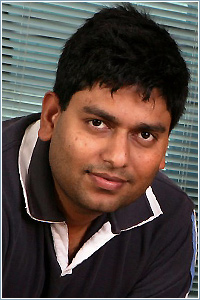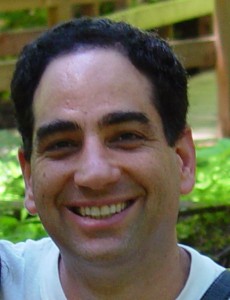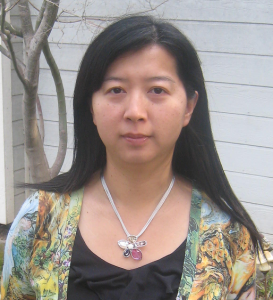UEO 2013 at CIKM 2013
Welcome to The 1st Workshop on User Engagement Optimization at CIKM 2013
Date: November 1, 2013 (Friday)
Venue: San Francisco Airport Marriott Waterfront, Burlingame, CA, USA
Program & Slides
The schedule of the program and slides of most talks are available at http://www.ueo-workshop.com/previous-editions/ueo-2013-at-cikm-2013/ueo2013-program/.
Proceedings
The proceedings are available at http://dl.acm.org/citation.cfm?id=2512875.
Introduction
Online user engagement plays a central role in the business success of many industry companies that own or operate Web sites, apps, and other online systems, including major Web search engines, Web portals, social networking websites, e-commerce systems, and numerous mobile/Web app owners. The key idea of online engagement optimization is to discover and leverage collected knowledge about the behavioral patterns of online engagement and provide features, functionality and experiences accordingly to attract users’ involvement, facilitate their interaction and enhance the long-term satisfaction. Study on this topic raises tremendous challenges to many disciplines, yet most of which we believe have to date been under-explored:
- Metrics and measurements: How to measure user engagement and its quality (both short-term and long-term) based on online user traffic? What ’re good metrics for different tasks (e.g., monitoring, control and intervention)? What ’re the guideline for metric design?
- User modeling, personalization and targeting: How to discover reliable knowledge about the users, their interests and behavioral patterns and provide customized features or resources that are tailored or targeted towards their specific needs.
- Machine learning for streaming data: How to develop models, algorithms and implementations that are effective in handling online user engagement data that are noisy, sparse and incomplete in nature and in the same time scalable to the extensive availability and scale of such data.
- Online experiments: How to tune, test and validate a specific intervention or design decision based on time-drifting online traffic? How to mitigate the effects of exogenous factors?
- Visualization and interpretation: How to make sense or discover insights from user engagement data to facilitate the design of an intervention or justify the outcome of a particular intervention or design decision?
This workshop aims to connect academic researchers and industrial practitioners who are working on or interested in online engagement optimization. The goal is to provide a forum for industrial practitioners to expose real-world challenges to academic communities and for academic researchers to popularize state-of-art research outcomes to industrial practitioners, and foster collaboration between the two. The workshop will be a full-day events consisting of invited talks of academic research advances and industrial technical showcases on related topics followed with a poster session.
Scope
- Online experiments
- Controlled experiment design
- Hypothesis test on online engagement data
-
Applications of controlled online experiments
- Metrics and measurements
- Guidelines for user engagement metric design
-
Short-term and long-term engagement metrics
-
Metrics and measurements for controlled experiments and significance testing
-
Psychological, sociological, and cultural factors in metrics
-
User modeling, personalization and targeting
-
Scalable machine learning techniques for personalization
-
User behavioral/interests models
-
Recommendation and personalization algorithms
-
Behavior targeting
-
Recommendation justification, sense-making and persuasion
-
Applications
-
-
Machine learning for streaming data
-
Online learning
-
Streaming algorithms
-
Novel large-scale learning frameworks
-
-
Visualization and interpretation
-
Algorithms and tools for visualization of engagement data
-
General patterns / characteristics of online user engagement
-
Mining user engagement data
-
Factor analysis, correlation interpretation and causality identification
-
Successful applications
-
Invited Speakers
Dr. Deepak Agarwal
Director of Engineering – Machine Learning, LinkedIn

Deepak Agarwal leads a group of applied researchers in LinkedIn, focusing on developing and deploying algorithms based on large scale machine learning, data mining and statistics for applications like computational advertising, content optimization and feed optimization. His main interests include computational advertising, feed recommendation and content recommendation. Previously, as Director of Research at Yahoo! he deployed algorithms that improved Yahoo’s content recommendation. He has published extensively in top-tier conferences and journals. Deepak’s number one passion is to bridge the gap between academic research and industrial practice. He also works closely with teams in computational advertising to deploy elaborate statistical models on the RightMedia Ad Exchange, yet another large scale recommender system. He currently serves as associate editor for the Journal of American Statistical Association (JASA) and IEEE Transaction on Knowledge discovery and Data Engineering (TKDE).
Dr. Ron Kohavi
Partner Architect – Microsoft’s Online Services Division
 Ronny Kohavi is a partner architect in the Online Services Division at Microsoft. He joined Microsoft in 2005 and founded the Experimentation Platform team in 2006. He was previously the director of data mining and personalization at Amazon.com, and the Vice President of Business Intelligence at Blue Martini Software, which went public in 2000, and later acquired by Red Prairie. Prior to joining Blue Martini, Kohavi managed MineSet project, Silicon Graphics’ award-winning product for data mining and visualization. He joined Silicon Graphics after getting a Ph.D. in Machine Learning from Stanford University, where he led the MLC++ project, the Machine Learning library in C++ used in MineSet and at Blue Martini Software. Kohavi received his BA from the Technion, Israel. He was the General Chair for KDD 2004, co-chair of KDD 99’s industrial track with Jim Gray, and co-chair of the KDD Cup 2000 with Carla Brodley. He was an invited speaker at the National Academy of Engineering in 2000, a keynote speaker at PAKDD 2001, an invited speaker at KDD 2001’s industrial track, a keynote speaker at EC 10 (2010) and at Recsys 2012.
Ronny Kohavi is a partner architect in the Online Services Division at Microsoft. He joined Microsoft in 2005 and founded the Experimentation Platform team in 2006. He was previously the director of data mining and personalization at Amazon.com, and the Vice President of Business Intelligence at Blue Martini Software, which went public in 2000, and later acquired by Red Prairie. Prior to joining Blue Martini, Kohavi managed MineSet project, Silicon Graphics’ award-winning product for data mining and visualization. He joined Silicon Graphics after getting a Ph.D. in Machine Learning from Stanford University, where he led the MLC++ project, the Machine Learning library in C++ used in MineSet and at Blue Martini Software. Kohavi received his BA from the Technion, Israel. He was the General Chair for KDD 2004, co-chair of KDD 99’s industrial track with Jim Gray, and co-chair of the KDD Cup 2000 with Carla Brodley. He was an invited speaker at the National Academy of Engineering in 2000, a keynote speaker at PAKDD 2001, an invited speaker at KDD 2001’s industrial track, a keynote speaker at EC 10 (2010) and at Recsys 2012.
Dr. Yi Zhang
Associate Professor – University of California, Santa Cruz
 Dr. Yi Zhang is an Associate Professor in School of Engineering, University of California Santa Cruz. Her research interests are recommendation systems, information retrieval, applied machine learning, natural language processing, and computational economics. She has received various awards, including ACM SIGIR Best Paper Award, National Science Foundation Faculty Career Award, Air Force Young Investigator Award, Google Research Award, Microsoft Research Award, and IBM Research Fellowship. She has serve as program co-chair in charge of IR at CIKM and senior PC member for various conferences. She is an associate editor for ACM Transaction on Information Systems where they use VCN systems for network security. She has served as a consultant or a technical adviser for several companies and start ups. She received her B.S. from Department of Computer Science & Technology at Tsinghua University in 1999 and her Ph.D. from School of Computer Science at Carnegie Mellon University in 2005.
Dr. Yi Zhang is an Associate Professor in School of Engineering, University of California Santa Cruz. Her research interests are recommendation systems, information retrieval, applied machine learning, natural language processing, and computational economics. She has received various awards, including ACM SIGIR Best Paper Award, National Science Foundation Faculty Career Award, Air Force Young Investigator Award, Google Research Award, Microsoft Research Award, and IBM Research Fellowship. She has serve as program co-chair in charge of IR at CIKM and senior PC member for various conferences. She is an associate editor for ACM Transaction on Information Systems where they use VCN systems for network security. She has served as a consultant or a technical adviser for several companies and start ups. She received her B.S. from Department of Computer Science & Technology at Tsinghua University in 1999 and her Ph.D. from School of Computer Science at Carnegie Mellon University in 2005.
Caitlin Smallwood
Director of Consumer Science and Analytics – Netflix
 Caitlin Smallwood is the Director of Consumer Science and Analytics at Netflix, where she and her team manage experimentation and conduct both descriptive and predictive analytics to help optimize the Netflix product. With over 20 years of experience (Netflix, Yahoo!, Intuit, Hyperion Solutions, consulting), Caitlin’s background spans a variety of analytic disciplines including experimentation, recommendation systems, analytic product management, predictive modeling, and business intelligence. Caitlin holds an M.S. in Operations Research from Stanford University and a B.S. in Mathematics from The College of William and Mary.
Caitlin Smallwood is the Director of Consumer Science and Analytics at Netflix, where she and her team manage experimentation and conduct both descriptive and predictive analytics to help optimize the Netflix product. With over 20 years of experience (Netflix, Yahoo!, Intuit, Hyperion Solutions, consulting), Caitlin’s background spans a variety of analytic disciplines including experimentation, recommendation systems, analytic product management, predictive modeling, and business intelligence. Caitlin holds an M.S. in Operations Research from Stanford University and a B.S. in Mathematics from The College of William and Mary.
Aleksander Kołcz
Data Scientist – Twitter
 Aleksander Kołcz is a Data Scientist at Twitter, where he focuses on applying Machine Learning and Data Mining techniques to modeling user interests, Twitter content and to preventing service abuse. He has 13 years of industrial R&D experience, with past employers including Microsoft, AOL and Personalogy. He was KM-track Program Co-Chair of CIKM 2008, General Chair of CEAS 2008 and served as Associate Editor of ACM TOIT. He was a keynote speaker ESWC2012. He received his PhD in 1996 from the University of Manchester Institute of Science and Technology.
Aleksander Kołcz is a Data Scientist at Twitter, where he focuses on applying Machine Learning and Data Mining techniques to modeling user interests, Twitter content and to preventing service abuse. He has 13 years of industrial R&D experience, with past employers including Microsoft, AOL and Personalogy. He was KM-track Program Co-Chair of CIKM 2008, General Chair of CEAS 2008 and served as Associate Editor of ACM TOIT. He was a keynote speaker ESWC2012. He received his PhD in 1996 from the University of Manchester Institute of Science and Technology.
Organizers
Liangjie Hong — Research Scientist, Yahoo Labs
Shuang-Hong Yang — Research Scientist, Twitter Inc.
Program Committee
Yue Lu — Software Engineer, Twitter Inc.
Jie Luo — Research Scientist, Yahoo Labs
Bo Long — Senior Researcher, LinkedIn
Dan Zhang — Research Scientist, Facebook
Ke Zhou — Software Engineer, Twitter Inc.
Jian Wang — Applied Researcher, LinkedIn
Duo Zhang — Software Engineer, Twitter Inc.
Yuanhua Lv — Researcher, Microsoft Research Silicon Valley
Guang Xiang — Software Engineer, Twitter Inc.